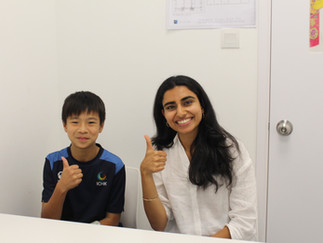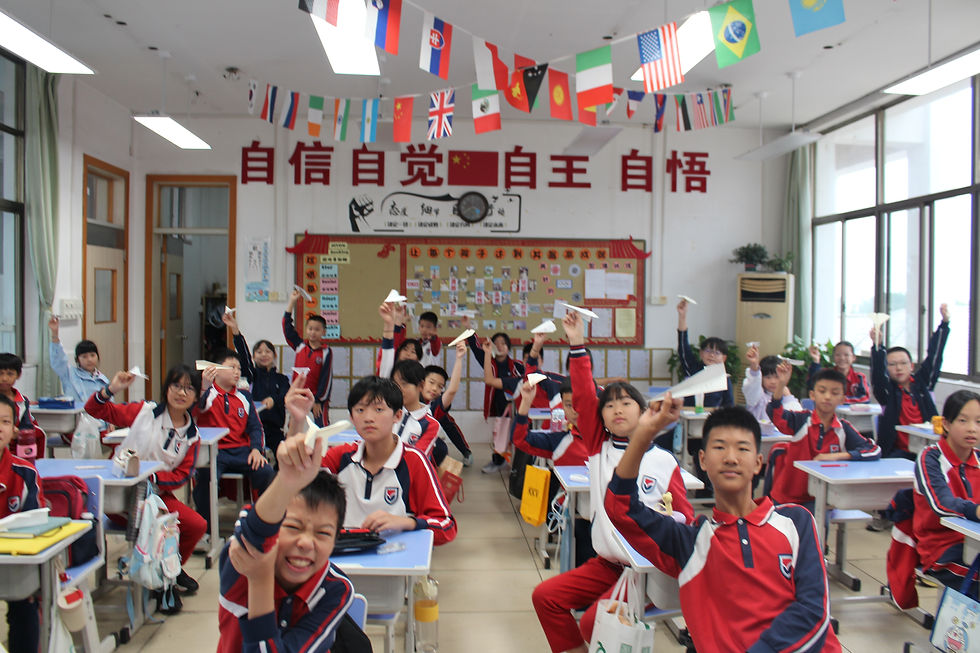Lessons from Teaching in Hong Kong
- Shannon Dhillon
- Mar 21
- 3 min read
Spending three months living and working in Hong Kong was a hugely eye-opening experience. I lived in the middle of Jordan and Tsim Tsa Shui, the hub of Hong Kong. had the opportunity to work as a private tutor and educational consultant while also teaching at IStudy Tuition Centre in Fo Tan. My students came from a wide range of schools—from local schools like St Mary’s Canossian College to international schools within the English Schools Foundation (ESF) network. The diversity of educational approaches and the cultural expectations surrounding education in Hong Kong gave me a deep understanding of how students learn and thrive in this fast-paced, high-pressure environment.
Efficiency and Hard Work: The Hong Kong Mindset
Everything in Hong Kong is about efficiency. From the seamless MTR (Mass Transit Railway) system to the fast-paced service at cha chaan tengs (local tea restaurants), Hong Kongers like to get things done quickly and effectively. This mindset extends to education. My students’ schedules were packed—school days starting at 5 or 6 a.m., followed by lessons until 4 p.m., then straight into extracurricular activities like piano, Chinese, flute, gymnastics, karate, maths, and science until late evening—often including weekends.
Coming from the UK, where such intense scheduling is rare, this was a major shift for me. But in Hong Kong, this level of commitment is the norm. Success and hard work are deeply respected, and the drive to succeed is built into the fabric of society. The high cost of living, housing pressures, and competitive job market mean that securing a good future is paramount, and education is seen as the key to that success.

The Divide Between Local and International Schools
There’s a noticeable divide between local and international schools in Hong Kong. Local schools tend to be more intense, with a greater emphasis on memorisation, exams, and rankings. The workload is heavy, the curriculum is rigid, and the focus on English proficiency is often limited. In contrast, ESF and other international schools follow a more varied curriculum with a greater emphasis on creativity, independent thinking, and a balanced approach to learning.
This divide shapes how students learn and how they approach their goals. My local school students were more accustomed to following strict rules and preparing for tests, while my international school students were more comfortable with open discussion and creative thinking. Understanding these differences has helped me refine my approach to teaching at The Shan Academy.
Comparison Culture and Results-Driven Focus
A defining feature of Hong Kong’s education culture is the intense comparison culture. Parents and students alike are constantly comparing scores, rankings, and results. Success is measured in concrete terms—test scores, university placements, and awards. While this drive for success creates resilience and determination, it also creates a lot of pressure.
At The Shan Academy, I’ve incorporated this results-driven approach into my teaching, but with a more balanced outlook. I understand that my Hong Kong students are motivated by tangible progress, so I ensure they have clear goals and see measurable improvements. But I also focus on helping them enjoy the process—learning shouldn’t be purely about performance. My Hong Kong students tell me that this balanced approach is refreshing; they feel motivated and supported, but not overwhelmed.
Bringing My Experience Into The Shan Academy
My experience in Hong Kong has shaped the core of The Shan Academy. The Academy started out in Twickenham, South West London, where I became the go-to tutor for Hong Kong students attending Waldegrave School (my own former school). Over time, I realised that the intense, structured approach my Hong Kong students were used to could be combined with the more holistic, confidence-building approach I grew up with in the UK.
At The Shan Academy, we blend the strengths of both systems. We provide the structure, discipline, and goal-setting that Hong Kong students are familiar with, while also focusing on personal growth, confidence, and creative thinking. It’s not just about preparing for exams—it’s about helping students grow into confident, well-rounded individuals who can handle the pressures of both academic and real-world success.
Hong Kong taught me that success isn’t just about working harder—it’s about working smarter and finding balance. That’s the foundation of The Shan Academy: helping students succeed academically while also feeling supported, motivated, and happy.
.png)









































Comments